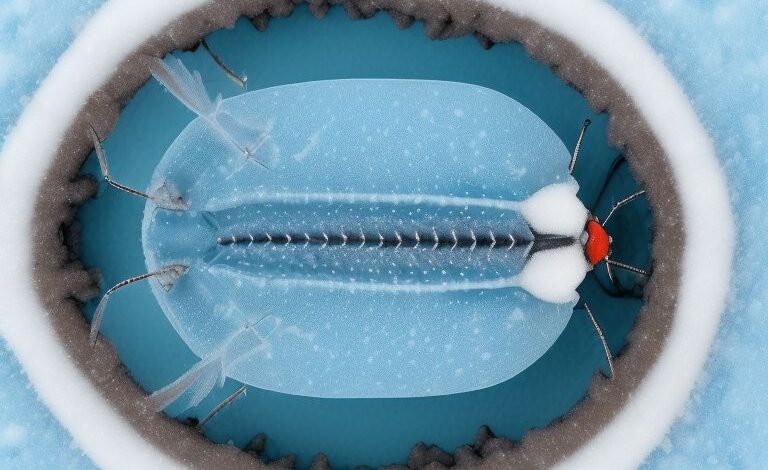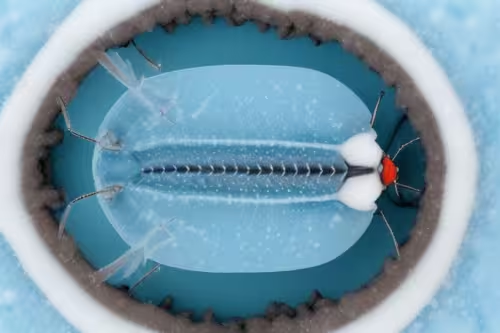Does Cold Kill Bed Bugs? The Ultimate Guide to Bed Bug Control Using Freezing Temperatures

Bed bugs are a nightmare no one wants to deal with. These tiny, blood-sucking pests have been infesting homes for centuries, causing sleepless nights and itching skin. One of the most common questions people ask when facing a bed bug infestation is: Does cold kill bed bugs?
The idea of freezing bed bugs to eliminate them is appealing, especially for those looking for non-toxic methods. In this comprehensive guide, we’ll explore whether cold can kill bed bugs, how effective it is, and the best methods to freeze them out of your home.

What Are Bed Bugs?
Bed bugs (Cimex lectularius) are small, reddish-brown parasitic insects that feed on the blood of humans and animals. These nocturnal pests are infamous for hiding in the seams of mattresses, furniture, and cracks in walls, only to come out at night to feed on unsuspecting sleepers. They reproduce rapidly, making infestations difficult to control.
Unlike many pests, bed bugs are not attracted by food crumbs or unsanitary conditions. They are primarily drawn to warmth and the carbon dioxide we exhale, which is why they prefer to inhabit places close to where people sleep.
How Do Bed Bugs Survive in Different Temperatures?
Bed bugs are highly resilient creatures. They can survive in a wide range of temperatures, but their activity and reproduction thrive in warm environments—ideally between 70°F and 80°F (21°C to 27°C). Extreme temperatures, either too hot or too cold, can impact their survival, making temperature control a useful strategy for dealing with bed bugs.
Can Cold Kill Bed Bugs?
Yes, cold can kill bed bugs, but it requires very specific conditions to be effective. Bed bugs, especially in their adult form, are relatively resistant to short exposures to cold temperatures. For cold to be a reliable method of bed bug control, it needs to be applied at the right temperature for an extended period.
How Cold is Cold Enough?
Bed bugs begin to die when exposed to temperatures at or below 0°F (-18°C). This is the freezing point where their bodily functions start to break down, and they can no longer survive. However, simply reaching 0°F is not enough to guarantee their demise. The exposure needs to last long enough to penetrate the areas where bed bugs hide.
How Long Does it Take to Freeze Bed Bugs to Death?
For freezing to be effective, bed bugs must be exposed to freezing temperatures for at least 4 days. This allows the cold to penetrate furniture, clothing, and other hiding spots to ensure that both adult bed bugs and their eggs are killed.
How to Use Freezing Temperatures to Kill Bed Bugs
There are two primary ways to utilize cold to kill bed bugs: using your home freezer or hiring a professional to apply cryogenic treatments.
Using Your Freezer
One of the most straightforward methods to freeze bed bugs is by placing infested items in your freezer. Here’s a step-by-step guide:
- Seal Infested Items: Place clothing, bedding, toys, or other small items in a sealed plastic bag to prevent bed bugs from escaping.
- Set Your Freezer: Ensure that your freezer is set to 0°F (-18°C) or lower. If your freezer cannot reach this temperature, this method may not be effective.
- Freeze for 4 Days: Leave the items in the freezer for a minimum of 4 days. The prolonged exposure ensures that both bed bugs and their eggs are killed.
- Carefully Remove: Once the items have been frozen, remove them carefully. Inspect them for any remaining bed bug activity before using or storing them again.
This method works well for small items but is not practical for larger furniture, mattresses, or areas where bed bugs hide.
Professional Cryonite Treatment
Cryonite treatment is a professional pest control method that uses carbon dioxide (CO2) snow to freeze and kill bed bugs on contact. This method is non-toxic, making it ideal for use in sensitive environments such as hospitals and homes with children or pets.
Cryonite freezes bed bugs quickly without leaving any residue, and because it’s a gas, it can reach into cracks and crevices where bed bugs often hide. It’s one of the most effective cold treatments available, but it requires professional application.
The Limitations of Using Cold to Kill Bed Bugs
While cold can kill bed bugs, it is not without its limitations:
- Time-Consuming: Freezing bed bugs requires a minimum of 4 days at very low temperatures. This is not a quick solution for large infestations.
- Limited Reach: Freezing is effective for small, portable items but not practical for large pieces of furniture or entire rooms.
- Professional Costs: Cryonite treatments are highly effective but can be expensive and require a licensed pest control expert.
- Reinfestation Risk: If not all bed bugs or eggs are exposed to freezing temperatures, the infestation can quickly return.
Due to these limitations, freezing is often used as a supplementary method rather than the primary solution for eliminating bed bugs.
Other Effective Methods for Bed Bug Control
If cold treatments are not an option or aren’t effective on their own, there are several other methods to control and eliminate bed bugs.
Heat Treatment
Heat is one of the most effective ways to kill bed bugs. Bed bugs cannot survive temperatures above 122°F (50°C). Professional heat treatments involve heating infested rooms or entire homes to this temperature to kill all stages of bed bugs, including eggs. This method is highly effective and can usually be completed within a day.
Chemical Pesticides
Many insecticides are available for bed bug control, ranging from over-the-counter sprays to professional-grade chemicals. Some of the most effective chemicals for bed bug control include:
- Pyrethroids: Synthetic chemicals that kill bed bugs on contact.
- Neonicotinoids: Insecticides that attack bed bugs’ nervous systems.
- Desiccants: Products like diatomaceous earth and silica dust dehydrate bed bugs, causing them to die.
It’s important to use these products as directed, as misuse can lead to bed bug resistance.
Diatomaceous Earth
Diatomaceous earth is a natural powder made from fossilized algae. When bed bugs come into contact with it, the powder destroys their exoskeletons, causing them to dehydrate and die. It’s a non-toxic and affordable method but works slowly compared to other treatments.
Preventing Bed Bug Infestations
Once bed bugs are gone, preventing a future infestation is critical. Here are some prevention tips:
- Regular Inspections: Check your mattresses, bed frames, and furniture regularly for signs of bed bugs.
- Avoid Used Furniture: Secondhand furniture is a common source of bed bug infestations. Be cautious when bringing used items into your home.
- Cover Mattresses: Use bed bug-proof mattress covers to prevent bed bugs from infesting your bed.
- Careful Travel: Hotels and public transportation can be breeding grounds for bed bugs. Always inspect your luggage and clothing after traveling.
- Declutter: Bed bugs thrive in cluttered environments. Keep your home clean and organized to reduce hiding spots.
FAQ: Does Cold Kill Bed Bugs?
Q: Can I use my freezer to kill bed bugs in my mattress?
No, your mattress is likely too large to fit in a household freezer. For mattresses and large furniture, professional heat or cryonite treatments are more effective.
Q: What is the fastest way to kill bed bugs?
Heat treatment is the fastest method. It kills all life stages of bed bugs in a matter of hours when applied correctly by a professional.
Q: Can bed bugs survive in a cold house?
Bed bugs can survive in cold environments as long as temperatures don’t fall below freezing for extended periods. Cold houses alone are unlikely to kill bed bugs.
Q: Is freezing a reliable way to kill bed bug eggs?
Yes, freezing at 0°F (-18°C) for at least 4 days will kill bed bug eggs, but it must be applied consistently to be effective.
So, does cold kill bed bugs? Yes, but it requires prolonged exposure to freezing temperatures to be truly effective. Freezing is a useful tool for small items and can be part of a broader bed bug control strategy. However, for larger infestations, methods like heat treatment and chemical pesticides are often more effective and faster.
When dealing with bed bugs, it’s crucial to act quickly and use a combination of treatments to eliminate the pests completely. And remember, prevention is key—taking steps to avoid infestations in the first place is always the best course of action.



